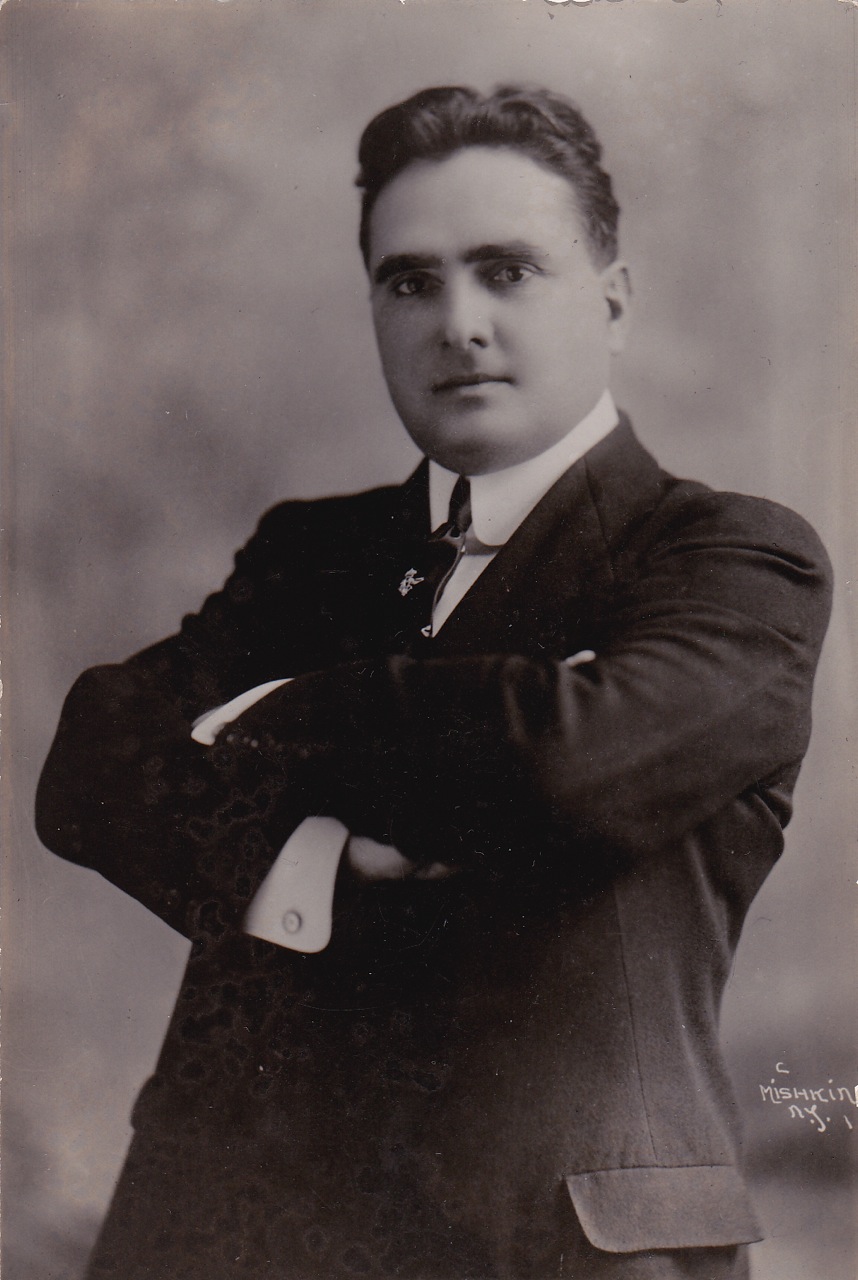 (all photos courtesy Charles Mintzer except the author's)
(all photos courtesy Charles Mintzer except the author's)
RICCARDO STRACCIARI, the man and the teacher.
 (all photos courtesy Charles Mintzer except the author's)
(all photos courtesy Charles Mintzer except the author's)
Many years ago, in 1985, “The Record collector” issued a number dedicated to Riccardo Stracciari. I was the author of the text: having not changed my opinions on Stracciari’s voice and art, I’ll pick up here and there some excerpts from what I wrote 26 years ago. My friend Giorgio Sani, asked by me for an article on Stracciari, kindly accepted this task and has written exhaustively on his voice and his technique. I agree completely with him and I have nothing to add to his words.
My friend Sani emphasizes the Stracciari’s ability to sing light music and he refers to Carlo Tagliabue and Tancredi Pasero as excellent performers of these musical miniatures. I would add another baritone who was able to transform, as was Stracciari, little songs in true masterpieces: Giuseppe De Luca.
Riccardo Stracciari could boast one of the longest careers in operatic history. Though his official debut dates back to 1899 with an oratorium by Lorenzo Perosi, he had begun to sing on the stage in 1894, in the operetta Company of a manager named Giovanni Gargano. His last appearances in the theatre took place in Como, in 1944 with “La Traviata”. I think it is not necessary we run over again on all the performances in which he sang. He appeared in all the most important theatres of the world, from la Scala to the Metropolitan, from Covent Garden to the Chicago Opera, in every country, Spain, Russia, Mexico, Chile, Uruguay, Argentina, USA, France, England, Brazil, Havana, Germany…and many, many others.
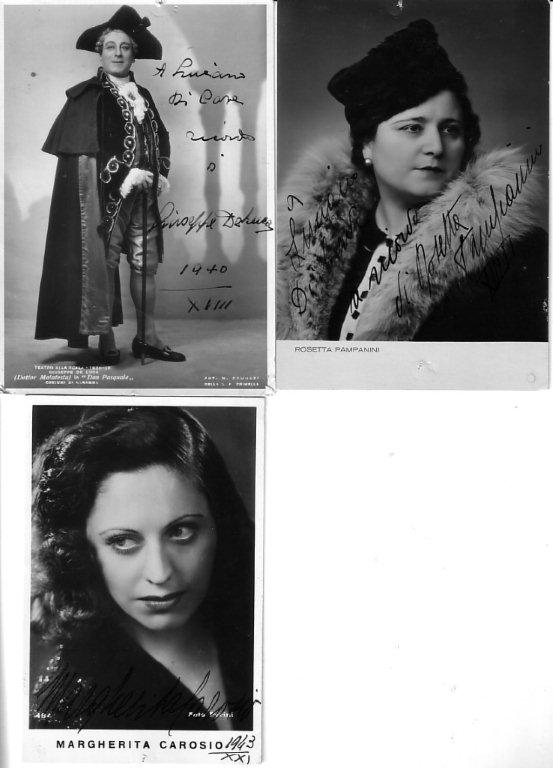
My first encounter with Stracciari happened in as far back as 1939… with the help of the telephone! I was 13 and I was already interested in opera and, above all, in operatic singers (and still I am!). I had bought some records (not many, because in those years they were very expensive) and, through them I began to know the voices of many famous singers. Some of these artists appeared in the telephone directory, so I called Giuseppe De Luca, Margherita Carosio, Rosetta Pampanini and, last but not least, Riccardo Stracciari. Lina Pagliughi, whose voice had already conquered my heart, lived in Milan, I didn’t know her address, she was, for the while, unreachable.
The four singers to whom I asked for their autographed photos proved to be very kind and happy, I think, to have such a young admirer. I am jalously keeping, amongst others, the photos of the four singers: here you may look at the photo of Stracciari, with a dedication and complete with the date:
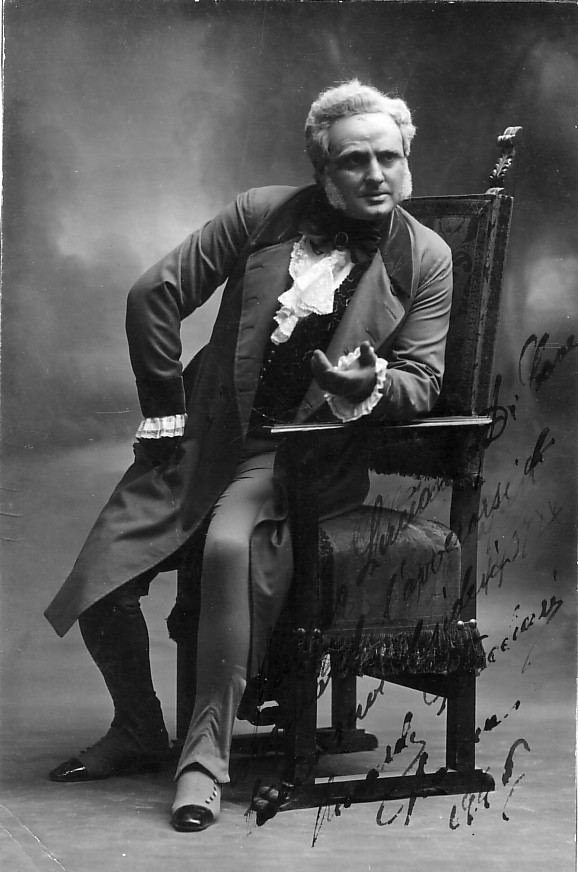
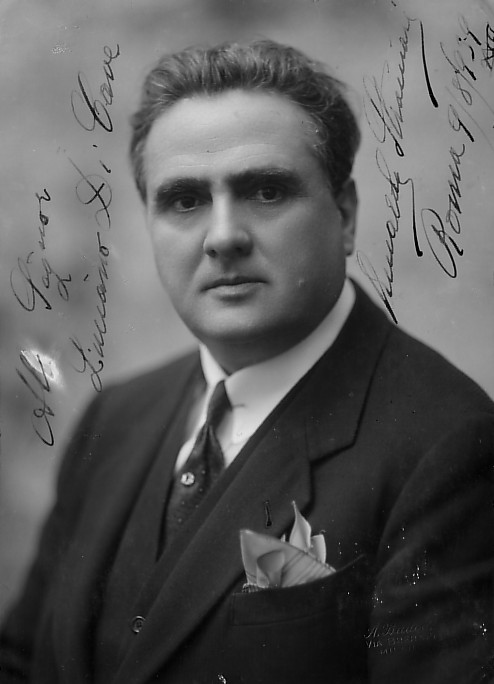
I got to know R.S. personally some years later, when I had begun to study singing: a man of strong personality, fatherly towards his pupils, gifted with kindness and humour. Supported by his wife he always took agreat care of himself, of his look, of his dresses; he never failed to wear a handkerchief in the little pocket of his coat.
His methods of teaching have often been censured, but he trained singers such as Boris Christoff and Alexander Sved and many others took advantage from his coaching, among them Fiorella Carmen Forti, Alvinio Misciano, Otello Borgonovo. For what concerns “interpretation” Stracciari was an unsurpassable teacher, his advice was perfect and showed his art at its highest degree.
I had the opportunity to admire some of his stage costumes: they were elegant, rich and made of precious materials: I remember those of Rodrigo in Don Carlos : wonderful!!
His lessons were always interesting and his conversation charming. Stracciari could not play the piano and he appealed to an old pianist for the piano accompaniment. I remember very well Maestro Assante, perhaps some years older than Stracciari, who had been his accompanist on many occasions. He was a very good musician, a man of great kindness and humanity. It was a real delight to listen to their conversation, when they talked about artistic events and mentioned their collaboration with singers whose names belong to a now legendary past: Graciela Pareto, Schipa, Chaljapin, Ponselle, even Caruso. Stracciari's judgements about his colleagues were always objective and his criticicisms completely correct. He talked about the beautiful “mezza voce” of Benvenuto Franci, of Giuseppe De Luca whose superlative acting qualities were superior to his vocal resources, even if his voice was of good quality and excellently trained.
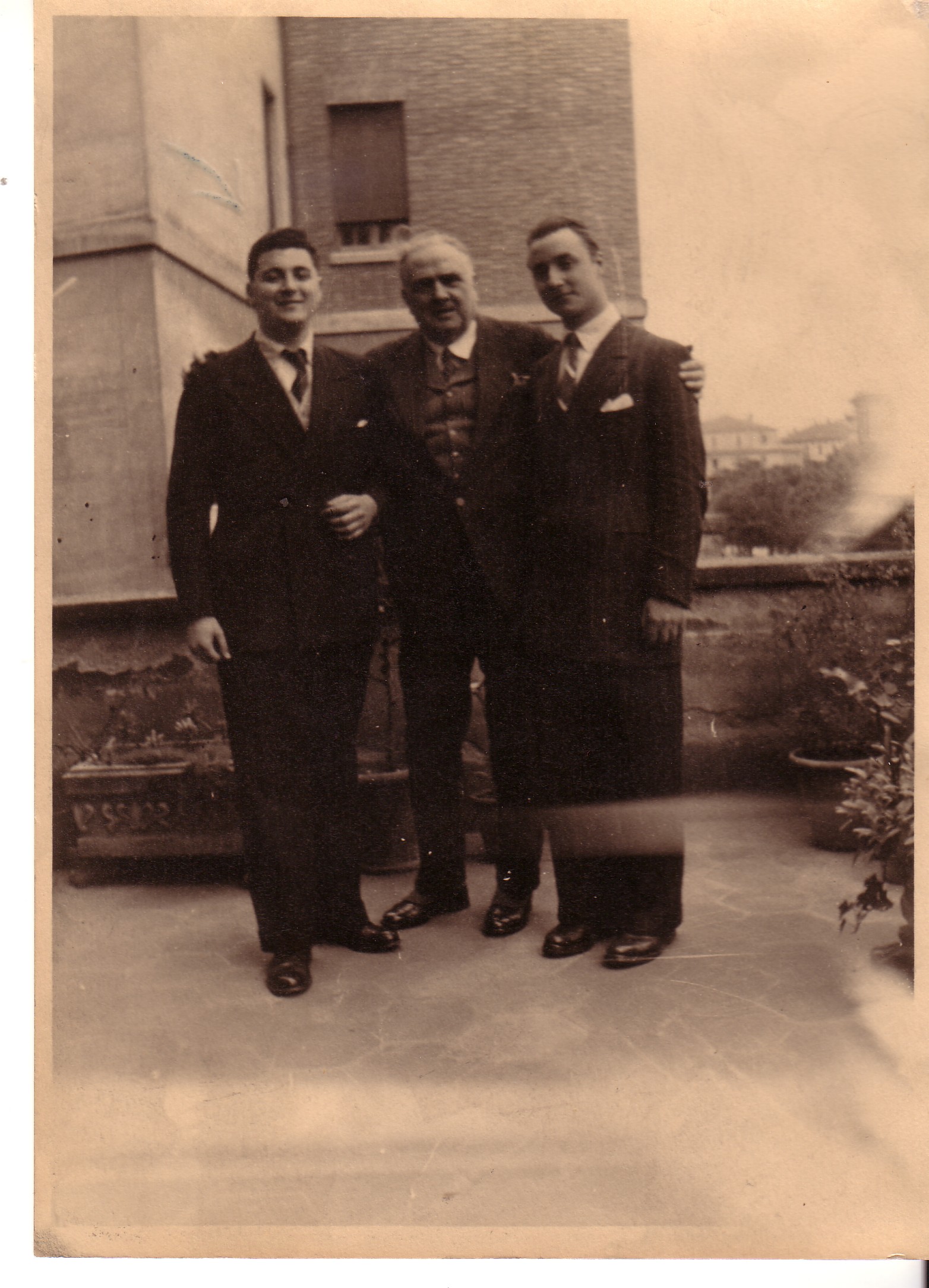 (Di Cave-RS and Otello Borgonovo, courtesy and copyright di Cave)
(Di Cave-RS and Otello Borgonovo, courtesy and copyright di Cave)
Stracciari told me of an amusing episode concerning another baritone. This singer, very good in a limited repertoire, had been scheduled for some performances of Rigoletto, substituting Stracciari who had sung on the first nights. Stracciari went to the theatre to listen to his substitute, but he was not aware that his name still appeared on the program of the opera. So he was astonished to hear a man in the adjacent box exclaiming : “Che cane questo Stracciari!”. (What a dog is thisStracciari!)
Always concerning Rigoletto :once Stracciari sung it with Elvira De Hidalgo. He said that she was a wonderful Rosina in “Il Barbiere di Siviglia”, but could not achieve a great success performing Gilda. At the end of the opera she told Stracciari: I regret that Rigoletto does not suit to me! – Stracciari was ready to reply: Perhaps, “signora”, that YOU don’t suit to Rigoletto!
But always ready to witty remarks he could also defend his colleagues: When I asked him about the occasional shortcomings in pitch and tone that were sometimes evident in Galli Curci’s voice, he referred to the first part of her career, when her singing was not affected by the goitre. “Her pitch on the stage, he said, was impeccable, yet to a person sitting in the theatre it seemed to be faulty… when I was singing with her, if she had given me the wrong pitch, I should have realised this immediately… but it never happened.
About Toti Dal Monte he had listened to her when she was still studying with Barbara Marchisio. The latter was uncertain about her pupil’s repertoire, her voice being too light for “soprano lirico” and not very sure in the high notes to be a “coloratura” soprano. We know that Toti Dal Monte did not become a real “coloratura” but for her chrystal voice and her intelligence she achieved great fame and popularity. Many remembrances of sympathy were dedicated to Graciela Pareto, about Maria Galvany R.S. talked about her pyrotechnical virtuosity, of Storchio about her creation of Violetta, of Sembrich, Barrientos and Hempel.
He had the greatest admiration for Caruso, insisting on his uniqueness and spoke of Tetrazzini’s astonishing voice and her pleasant disposition. With Tetrazzini he used to exchange funny stories, often “very osé”. And sometimes he indulged in these spicy stories even with us, pupils.
He told me about a spicy story, which really happened, that concerns Arturo Toscanini and…Mme X. : after the end of the first act of an opera performed at La Scala, Stracciari decided to ask Toscanini for an explanation about the second act. He went straight to his dressing room, knocked at the door and entered in the room. He stopped abruptly: Toscanini was in a very intimate “tête-à-tête” with the soprano who was the protagonist of the opera. Stracciari pronounced one only word “Pardon” and went out shutting the door. I avoid to write the soprano’s name and cannot write the name of the opera she performed. It would be
too recognizable.
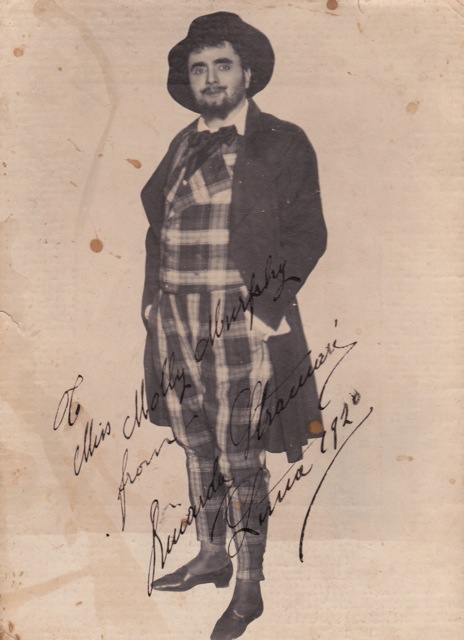
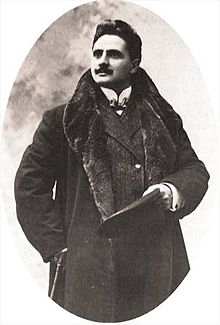
Mme Stracciari, who talked with us during the pauses of the lessons, was another mine of stories and anecdotes and her judgments on other singers were always interesting.
A tragedy had marked, in 1943, the life of the Stracciaris: the death of their son. Once their son’s daughter came to visit her grandparents and I hope that this lady has carefully kept all the documents, souvenirs, newspapers of her grandfather.
Stracciari showed me the test-proofs of the records he had sung with Rosina Storchio (from la Traviata). I know that, owing to his economic difficulties, Stracciari sold these records to an old Roman collector, but after his death, these records disappeared. Only one side “Pura siccome un angelo” has survived… till now.
At the end of the war Stracciari settled permanently in Rome, but life was expensive and the money scarce. He opened in his house a school for singers but it was not sufficient. So he was compelled to sell many of his artistic relics, among them the beautiful stage costumes I had admired some time before. Unexpected help arrived from the famous Edward J.Smith, the pionier of live recordings. Smith, arriving in Rome, decided to getting to know Stracciari personally and went to visit him. He realized immediately his economic difficulties and promised to help him. When returning to the USA he spoke with the managers of Columbia records and convinced them to pay to Stracciari the royalties of his records sold in America during the war.
So Stracciari received a good sum of money and thanked Smith heartily when he went again to visit him.
Stracciari had sung very often with the bass Adam Didur, who considered him a good friend. In 1945 Didur wrote to Stracciari from his native Poland, offering him a chair at the Warsaw Conservatory to teach singing. The conditions were satisfactory and Stracciari was tempted to accept. But his wife thought the climate of Poland, so different from the sweet air of Rome and also the age and the health of her husband not optimal. So he sadly but wisely refused the offer.
At the end of 1945 Stracciari accepted to sing in two concerts, here in Rome. The first at “La Sala Borromini” with some of his pupils and piano accompaniment, the second at the “Teatro Argentina”, with Angelica Tuccari, soprano and the accompaniment of a military band. He sang “Pari siamo” from Rigoletto, the “Credo” from Otello, and the duet “Dunque io son” from il Barbiere di Siviglia. His voice had retained much of the former beauty and the two concerts were great successes.
Luckily Stracciari can boast a big discography, in addition to the various excepts he recorded two complete operas, Rigoletto and il Barbiere di Siviglia. It is a pity he didn’t record the great duet from La Traviata with a great soprano such as Muzio or Ponselle, as Germont was one of his best portrayals.
Once, to one of his pupils who complained that this duet was too long, he replied very seriously: “You could cut it down”. “How?”asked the pupil. And Stracciari replied with gravity : “Madamigella Valery? Son io” – “Siate felice, addio”.
I hope that my remembrances have been of some interest. For those who are interested in the chronological career of Stracciari I suggest to consult Nr. 30 of The Record Collector, february 1985, where Cliff Robertson and J.B.Richards have compiled an exhaustive list of appearances. Here the concert debut of Stracciari is listed as “La Resurrezione di Lazzaro” by Perosi, but now I think that “La Resurrezione di Cristo” by the same composer is right.
Luciano Di Cave, Rome spring 2011